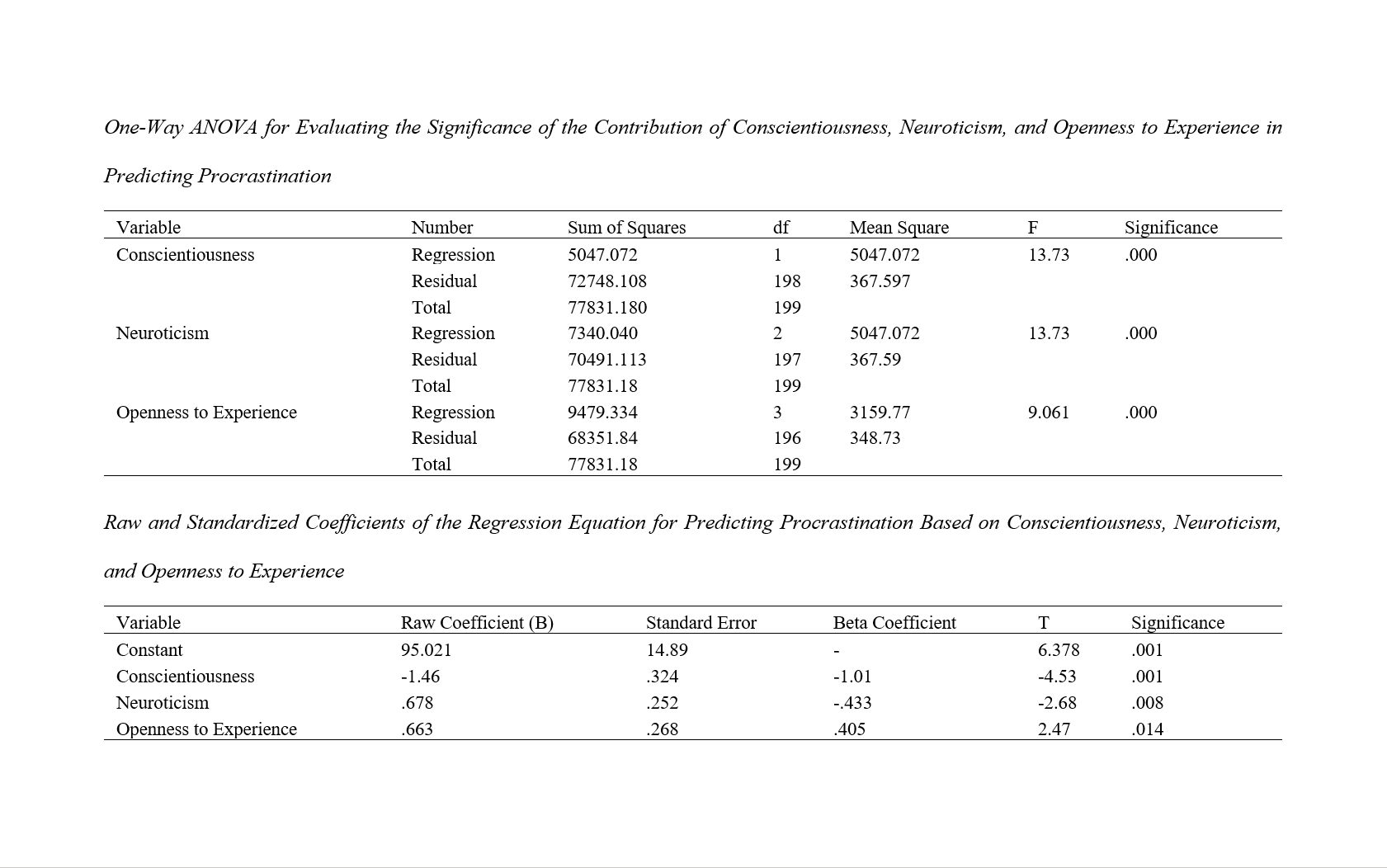Prediction of Academic Procrastination Based on Attachment Styles, Family Relationships, Personality Traits, and Academic Enthusiasm
Keywords:
Academic procrastination, school anxiety, attachment styles, family relationships, personality traits, academic enthusiasmAbstract
Objective: The aim of this study was to predict academic procrastination based on attachment styles, family relationships, personality traits, and academic enthusiasm among students in Divaniye, Iraq.
Methods and Materials: This research was descriptive and correlational in nature. The statistical population consisted of male and female students from Divaniye. A convenience sample of 300 male and female students was selected. Research instruments included the Solomon and Rothblum (1984) Academic Procrastination Questionnaire, the Armsden and Greenberg (1987) Inventory of Parent and Peer Attachment, the Olson and Barnes (2004) Family Relationship Questionnaire, the Costa and McCrae (1992) Five-Factor Personality Questionnaire, and the Fredericks et al. (2004) Academic Enthusiasm Questionnaire. Results were analyzed using both descriptive statistics (mean and standard deviation) and inferential statistics (Pearson correlation and stepwise regression).
Findings: The findings indicated that neuroticism and insecure attachment styles to peers and parents had a significant positive relationship with academic procrastination. In contrast, secure attachment styles to parents and peers, openness to experience, conscientiousness, and academic enthusiasm had a significant negative relationship with academic procrastination. Extraversion and agreeableness did not have a relationship with academic procrastination. The stepwise regression results showed that openness to experience, conscientiousness, academic enthusiasm, and secure attachment styles to peers and parents could predict academic procrastination.
Conclusion: In sum, the results indicated that all the mentioned variables had a significant relationship with procrastination except for extraversion and agreeableness. Additionally, among these correlated variables, personality traits had the power to predict procrastination.
Downloads

Downloads
Additional Files
Published
Submitted
Revised
Accepted
Issue
Section
License
Copyright (c) 2024 Ali Hamdan Kafi (Author); Zahra Yousefi (Corresponding Author); Radhi Hassan Obaid , Ilnaz Sajjadian (Author)

This work is licensed under a Creative Commons Attribution-NonCommercial 4.0 International License.








